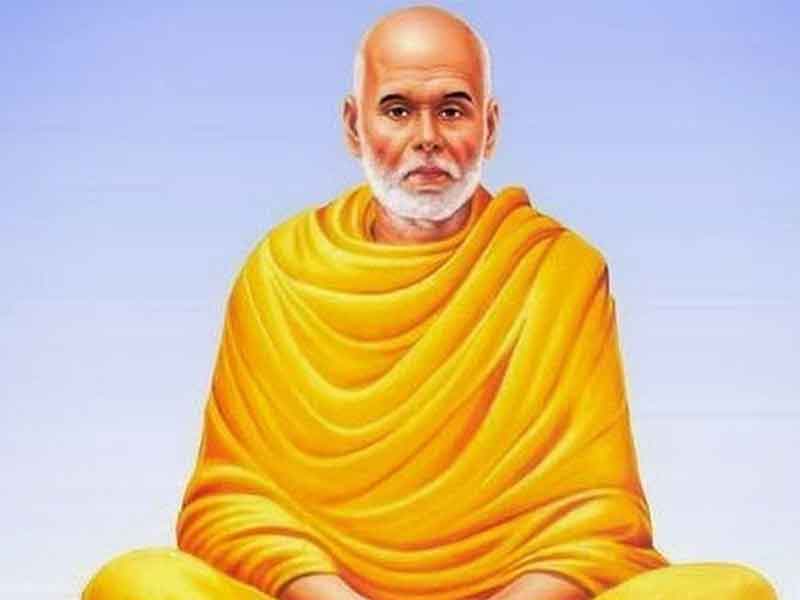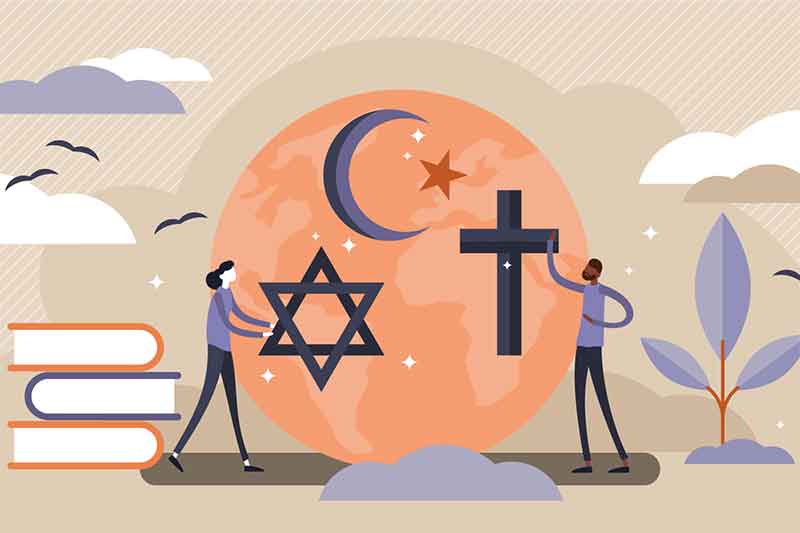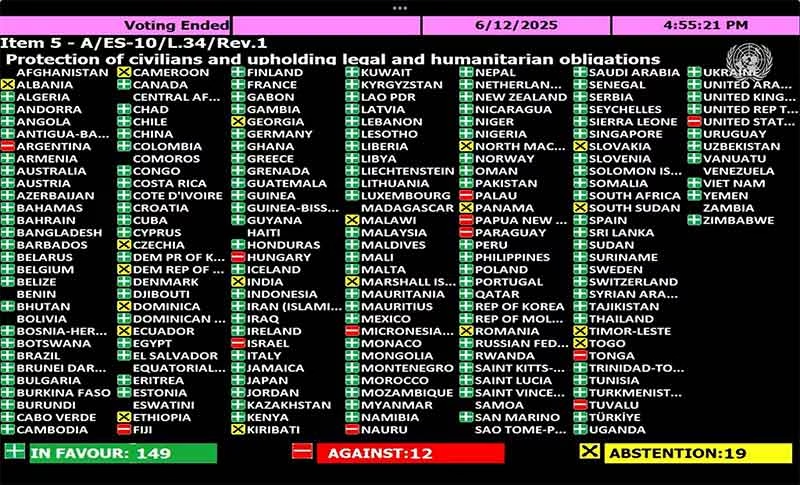
It was decades ago, as a teenager, that I first heard Karl Marx’s famous description of religion as the ‘opium of the people’. The impact of that pronouncement on me at that time was very – and not surprisingly – intoxicating.
Finally, I decided I knew what religion, which had been all around me since childhood, was really about. It was nothing more than a drug peddled by people and institutions for gaining power, influence or hard cash. And peddled to the masses, exploiting their anxieties, hopes, vulnerabilities and unfortunately also, an irrational faith in magical solutions to all of life’s problems.
Over the years though what has puzzled me is the link between religion and spirituality – two terms that are treated as siblings or close cousins and often conflated in their meanings. Given the ease with which religion has been corrupted, commercialised and manipulated by the cynical the question arises – does it have anything to do with the concept of spirituality at all ?
Isn’t spirituality a far larger concept than religion, being to the latter what the Universe is to Planet Earth? And are the religious or people of faith the only ones who can lay claim to being spiritual? What about the spirituality of atheists, communists and millions of people who don’t need the megaphone of religion to advertise their innate human quest for rising above purely material ambitions or desires?
These are questions that are relevant at a time when a rash of neo-fascist regimes pop up around the planet, using the hold of religious faith over the masses to propel themselves to power, with thoroughly irreligious motives. From the Hindu revivalism of Narendra Modi to the evangelical Christianity of Donald Trump through the Islamic nationalism of Tayyip Erdogan the contemporary world is rife with examples of fascists and rightwing extremists, backed by billionaires, misusing religion for achieving and consolidating power.
Before I get into all these questions let me explain how my own perception of religion has transformed since I saw it as a mere narcotic to fool people. Though I am still very sceptical of most mainstream religions today, my views have moderated and I don’t despise religion or religious institutions per se any more as I used to.
Instead, I have become a reluctant admirer of the business model they represent, the oldest and most successful one in human history. One that continues to be the world’s best low-risk, high return investment even today.
The business of religion operates on a remarkably consistent model: create demand through promises of salvation or spiritual fulfilment, establish barriers to entry through doctrinal complexity, and monetize the resulting relationship through donations, tithes, and service fees. Religious institutions secure customer loyalty through childhood indoctrination, community building, and cultivating fear of alternatives.
From a purely business perspective, it’s brilliant—a multi-generational customer acquisition strategy with minimal marketing costs and high customer retention. So, in my view, it makes sense to treat them exactly as they appear in practice, as successful commercial enterprises.
Yes, it is very true that all religious establishments sell mumbo-jumbo to make money but as long as it is not mandatory by law to buy their wares religion is not very different from any other modern corporate enterprise. In fact, thinking about it, corporations which sell fossil fuels, plastics, weapons and drugs are far more dangerous to the planet than all the religious institutions put together. If one takes just climate change or nuclear weapons as examples, many of the products of modern science and technology have brought the planet closer to the brink of extinction than anything to do with religion.
Therefore, instead of blindly opposing religious institutions, what is required is subjecting them to the same rules as all other businesses – no exemptions on grounds of tradition or faith. Tax the income and wealth of temples, mosques, churches; improve working conditions of their employees (through trade unions if needed); ensure safety at the workplaces (The sanctum sanctorum of most temples are mini-gas chambers with all that burning incense) and demand consumer rights for the devotees (yes, I want my money back from the damn hundi if my prayer goes unanswered!).
All financial transactions and appointment of personnel in religious institutions should be made completely transparent, democratic and subject to public scrutiny. If these institutions are run with public donations then the public has a right to know how their money is being spent.
A distinction should be made though between big, medium and small scale religion, just as we do with other commercial entities. Like with private companies, the bigger they are and more monopoly they exercise the worse their impact on human society. In the case of religious institutions too there are attempts at establishing monopolies, standardisation of rituals and practices accompanied by forced integration of ‘mom and pop’ religion at the local level with greedy and ever-expanding big enterprises.
This is what for example the new Hindutva model (with its flagship ‘Jai Shri Ram’ product) really represents – headquartered in UP, with financial and marketing advisors in Nagpur and Ahmedabad – this religious enterprise has swallowed all the diverse little faiths and traditions of Dalits, Adivasis, various backward castes across India and now sells them as part of its own megabrand. Two millennia ago, Christianity did the same in Europe to various pagan belief systems and Islam did its own merger and acquisitions when it expanded across the globe from the 7th Century AD onwards.
In that sense, the real fight may not be against religion but against the way all of them are dominated by different monopolies. Big Faith or Big Tech or Big Pharma – they are all the same when it comes to crushing the interests of ordinary citizens.
So, what about the way religions have historically promoted or continue to reinforce discrimination on the basis of caste, gender or even class status? Isn’t that reprehensible?
Of course it is and should be opposed vigorously by every right-thinking person. However, to be fair, such discrimination is hardly confined to temples or mosques or churches – they are widespread in society and practiced in schools, playgrounds, workplaces, eating places, shops and so on. There is no real evidence the problem originates within religious institutions.
Truth is that, the prejudices found in religion are reflections of what already exists out there in society. The same folks who own capital, land, weapons and wield power determine the do’s and don’ts of religious institutions – using the latter as an amplifier of their rotten values and to consolidate their hegemony over public mores and discourse. Fix the problems of society at large and religious institutions will transform too.
So, what about the role of religion in promoting hatred and violence between people of different faiths? Communalism, as it is called in India or sectarian conflict as it is known in many other countries, has over the centuries resulted in hundreds of thousands of deaths from Europe to Asia. South Asia in particular – with its cocktail of violent outbursts between Hindus, Muslims, Christians and Buddhists offers a really sordid example of this nasty phenomenon.
Here again though, a closer look beneath the surface reveals that much of the violence is not over principles of theology but more to do with disputes over sharing of common resources, mobilising of votes by politicians by stoking hate against the ‘other’ and growing alienation between communities due to urbanisation and the stresses of modern life. And when it comes to mass murder, in modern history, secular nationalism (as in the case of Nazi Germany) has been responsible for even greater casualties than religious wars. Religion and religious beliefs are a convenient vehicle for sectarian violence and not necessarily their cause.
And now for the billion Bitcoin question. What does religion have to do with spirituality?
Yes, like all other realms of human activity, religion too has the potential to be a gateway to spirituality, if practiced with great sincerity, shorn of obscurantism and the usual skulduggery. There are numerous examples of great men and women throughout history who have been both religious and deeply spiritual at the same time – from Francis of Assissi to Gorakhnath and from Basavanna to Kabir in the distant past and in modern times through Mahatma Gandhi, Martin Luther King Jr. or even Pope Francis who passed away recently.
In Latin America’s mvements like Liberation Theology and the resurgence of indigenous faiths that treat Planet Earth as their mother are also examples of how religiosity can be combined with larger spiritual goals.
However, the notion that spirituality resides exclusively within religious institutions is totally misleading and represents perhaps the most successful marketing campaign in human history.
Spirituality—that yearning for meaning beyond material existence, that sense of connection to something larger than oneself—transcends religious boundaries. It flourishes in secular spaces just as vibrant as in temples or churches. The time has come to openly acknowledge and celebrate the fact that even the most ordinary folk are often far more spiritual than all the snooty, self-appointed custodians of the Gods.
Consider the mother gazing upon her new born child, experiencing a love so transcendent it defies biological explanation. Or the scientist pausing in wonder before the elegant mathematics underlying physical reality. Or the teacher witnessing a student’s sudden comprehension, that moment when confusion transforms into understanding. These experiences contain spiritual dimensions no less profound than those found in formal prayer or ritual.
Spirituality exists in community gardens tended by neighbours who may never enter a house of worship together. It lives in hospice rooms where caregivers witness life’s final transition with compassion that transcends theological frameworks. It emerges in protest movements where people sacrifice personal comfort for collective justice, embodying values that most religions claim but often fail to practice.
The spiritual impulse—to seek meaning, to connect with others, to transcend the self—appears universally across human cultures. Religious institutions channel this impulse but did not create it. These institutions formalize and sometimes monopolize spiritual experience, but spirituality itself remains wild and untameable, sprouting through cracks in doctrine and flowering outside institutional walls.
Perhaps no group faces more misunderstanding regarding spirituality than atheists. Conventional wisdom positions atheism as spirituality’s antithesis, equating rejection of supernatural beings with rejection of transcendent meaning. This fundamental misunderstanding conflates belief in deities with capacity for spiritual experience (though, very interestingly Buddhism, Jainism, Sikhism and even the Advaita school of Hinduism do not posit the existence of any Supreme Being and are atheists in the modern sense of the term).
The atheist tradition contains profound spirituality—one focused on human liberation, collective wellbeing, and finding meaning in material reality rather than supernatural realms. Karl Marx himself, despite his criticism of religion, dedicated his life to alleviating human suffering and creating more just systems. His commitment represented spirituality of the highest order, concerned with collective liberation rather than personal salvation.
Many committed socialists and communists throughout history have willingly sacrificed their lives for causes larger than themselves—a spiritual surrender no less profound than religious martyrdom. The atheist who devotes their life to environmental protection, scientific advancement, or social justice engages with transcendent meaning as deeply as any religious practitioner. Their spirituality simply addresses this world rather than another, focusing on demonstrable impacts rather than promised afterlife rewards.
Indeed, the materialism of many religious practitioners often contrasts starkly with the transcendent commitments of atheist activists. How many self-proclaimed religious adherents fixate on material prosperity rather than spiritual development (Baba Ramdev is a sordid example) How many, when facing death, desperately seek medical intervention rather than embracing the heavenly reward their religion promises? (Baba Ramdev’s partner who was rushed to AIIMS, Delhi after a heart attack several years ago is an example)
My favourite question to the overtly religious is to ask them, ‘Do you have health insurance?’ Most do, in stark contrast to my much poorer, atheist friends. When they say yes, I ask them “why do you rush to the ICU of a hospital when God Himself/Herself is inviting you home?” The sad truth is that for all their professed love of divinity very few of the devout actually want to meet their Maker!
However, given religion’s profound influence on human society, I think that abdication of engagement with religious institutions represents a strategic error on the part of atheists and the non-religious. After all, Marx also called religion the ‘sigh of the oppressed, the heart of a heartless world, and the soul of soulless”.
Rather than dismissing religion entirely, those concerned with human wellbeing should actively participate in religious spaces, working to transform them into more democratic, inclusive, and genuinely spiritual communities. The manipulation of religious institutions succeeds partly because progressive and secular voices have abandoned religious spaces rather than contesting their direction.
By participating in religious institutions while maintaining critical perspective, progressives can influence these powerful social forces from within. This approach requires neither embracing supernatural claims nor compromising ethical principles. Rather, it means engaging with religious communities as important social systems that are an intrinsic part of all human societies historically. It means acknowledging that billions find meaning in religious frameworks while working to ensure those frameworks promote justice rather than oppression.
Such engagement could transform religious spaces into sites of democratic practice rather than hierarchical authority. It could help wean religious institutions from discriminatory practices regarding gender, caste, class, or sexuality. It could create interfaith solidarity against politicians who exploit religious differences. And it could reconnect religious institutions with their own ethical mandates for justice and compassion, often buried beneath layers of institutional self-preservation.
This is not naive optimism about religion’s perfectibility. Rather, it represents strategic recognition of religion’s continuing social power and the dangers of abandoning such influence to reactionary forces. The left’s historical contempt for religion has alienated natural allies among religious communities for too long while ceding these powerful institutions to right-wing influence.
The conventional division between religious and secular, spiritual and material, maintains artificial boundaries that serve institutional interests rather than human flourishing. Religion as business need not negate religion as meaningful practice. Spirituality beyond religious institutions need not threaten authentic religious experience. Atheist commitment to justice need not conflict with religious ethics. Participation in religious institutions need not require suspending critical thinking.
In the end, the question is not whether religion is business or spirituality, oppression or liberation, but how we engage with these powerful institutions to maximize their potential for justice while minimizing their capacity for exploitation. The answer lies not in rejection but in critical engagement—applying the same standards for justice, transparency, and democratic practice that we demand in other domains of human life.
Subscribe to Our Newsletter
Get the latest CounterCurrents updates delivered straight to your inbox.
Satya Sagar is a journalist and public health worker who can be reached at [email protected]

















































